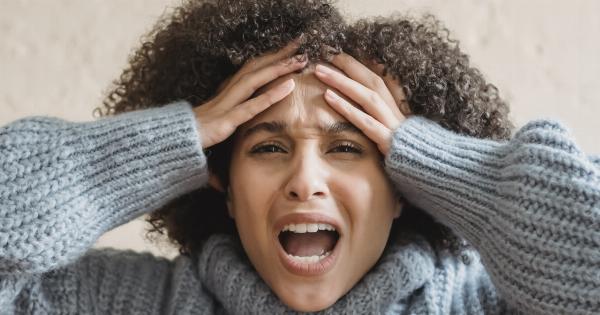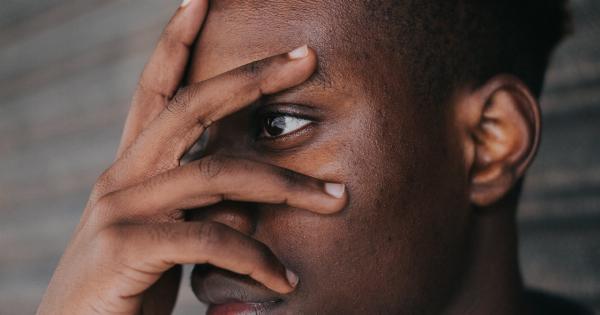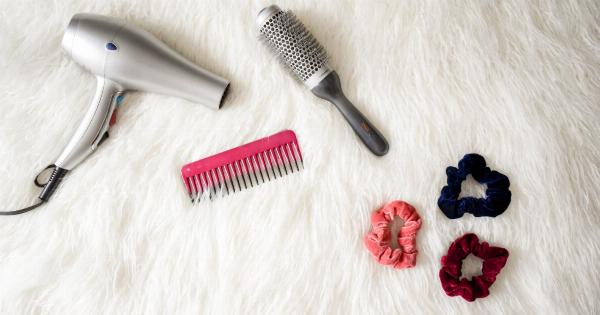Hair loss is a common issue for both men and women. However, it seems to be more prevalent in women. According to the American Academy of Dermatology, around 40% of women experience hair loss by the age of 50.
Female hair loss can be a result of various factors that disrupt the hair growth cycle, such as genetics, hormones, autoimmune disorders, stress, and certain medical conditions and treatments. Despite the widespread occurrence of hair loss in women, many myths still exist about the condition. In this article, we will debunk some of these common myths and uncover the truth behind them.
H2: Myth 1. Hair Loss in Women is Always Related to Genetics
Many people believe that hair loss in women is predominantly due to their family history and that there is not much one can do about it. While genetics play a role in female hair loss, there are other contributing factors as well.
Hormonal imbalances, nutritional deficiencies, medication side effects, scalp infections, physical and emotional stress, and certain hairstyles and hair products can all affect hair health and volume. It is essential to identify the underlying cause of hair loss and take appropriate actions to address it. Consultation with a dermatologist or hair specialist can help determine the root cause of hair loss and the most effective course of treatment.
H2: Myth 2. Wearing a Hat or Helmet Causes Hair Loss
Many people fear that wearing a hat or helmet leads to hair loss. However, this is not true. Hair loss occurs when the hair follicles are damaged or disrupted, which is not caused by wearing a head covering.
If hair loss does occur, it is likely a result of another factor, such as irritation from the hat or helmet, scalp infection, or genetic susceptibility. Wearing a hat or helmet may even protect the hair from external factors that could cause damage, such as UV rays or environmental pollutants.
H2: Myth 3. Cutting Hair Frequently Makes It Grow Back Thicker
It is a common belief that frequent trimming or cutting of hair helps it grow back thicker or faster. However, this is not true.
Hair thickness and rate of growth are determined by genetics, hormones, and nutritional factors, not by the frequency of haircuts. Hair trimming only removes split ends and damaged hair, which can promote healthier hair growth. Regular haircuts can help maintain the hair’s appearance and prevent excessive breakage and thinning from split ends.
H2: Myth 4. Hair Loss is Only a Problem for Older Women
While hair loss is more common in women over 50, it can affect women of all ages. Age is just one of the factors that contribute to female hair loss.
Hormonal imbalances, autoimmune disorders, and stress are significant contributors to hair loss and can affect women of any age. Detecting early signs of hair loss and addressing them can prevent further hair loss and promote hair regrowth.
If you notice excessive hair shedding or thinning, consult with a healthcare provider or a dermatologist to determine the underlying cause and get appropriate treatment.
H2: Myth 5. Coloring or Styling Hair Causes Hair Loss
Many women believe that coloring or styling their hair can lead to hair loss. However, this is not entirely accurate.
Chemicals in the hair dye or styling products can damage the hair shaft and lead to breakage, but they do not typically cause hair loss from the root. In some cases, certain hair treatments, like chemical straightening or hot oil treatments, can damage the hair follicles and cause hair loss.
It is crucial to be mindful of the products and treatments used on your hair and seek professional advice if necessary.
H2: Myth 6. Stress is Not a Significant Cause of Hair Loss
Stress can adversely affect hair health and lead to hair loss in women. When the body experiences stress, it releases a hormone called cortisol, which can disrupt the hair growth cycle and cause hair to shed prematurely.
Stress can also affect the immune system and lead to inflammation, which can contribute to hair loss in some cases. While not all stress leads to hair loss, chronic and intense stress can have significant impacts on hair health. Practicing stress management techniques, such as meditation, exercise, and therapy, can help alleviate stress and prevent hair loss.
H2: Myth 7. Using Hair Products or Treatments Can Restore Hair Growth
Many hair products and treatments claim to restore hair growth or prevent hair loss. However, not all of them are effective. The effectiveness of hair products and treatments depends on the underlying cause of hair loss.
For example, hair growth supplements may be effective for women with nutritional deficiencies or hormonal imbalances, but not for women with hair loss due to autoimmune disorders. Hair regrowth treatments, like minoxidil or platelet-rich plasma therapy, may be effective for some women, but not for others.
It is crucial to identify the underlying cause of hair loss and seek the advice of a healthcare provider or a dermatologist before trying any hair products or treatments.
H2: Myth 8. Hair Loss is Irreversible and Cannot be Treated
Many women believe that hair loss is irreversible and cannot be treated. However, this is not entirely accurate. While some types of hair loss may be permanent, certain causes of hair loss are treatable.
For example, hair loss due to hormonal imbalances can be treated with medications like birth control pills or spironolactone. Hair loss due to nutritional deficiencies can be treated with dietary changes or supplements. Hair loss due to scalp infections can be treated with antibiotics or antifungal medications.
It is crucial to identify the underlying cause of hair loss and seek appropriate treatment as soon as possible to prevent irreversible damage to the hair follicles.
H2: Myth 9. Hair Loss in Women is a Sign of Poor Health or Hygiene
Another common myth about hair loss in women is that it is a sign of poor health or hygiene. However, this is not true. Hair loss can be caused by various factors, many of which are beyond a person’s control.
While poor health or hygiene can contribute to hair loss in some cases, it is not always the cause. It is essential to address any underlying health issues and practice good hair hygiene, but doing so will not necessarily prevent hair loss.
H2: Myth 10. Hair Loss is Just a Cosmetic Concern and Not a Health Issue
Finally, some people believe that hair loss is just a cosmetic issue and not a health concern. However, this is not true. Hair loss can have various impacts on physical and mental health.
For some women, hair loss can lead to low self-esteem, anxiety, and depression. It can also be an early sign of a more severe health issue, such as an autoimmune disorder or thyroid disease. Ignoring hair loss can lead to further hair thinning and permanent damage to the hair follicles.
It is crucial to address hair loss as soon as possible and seek appropriate treatment.



















